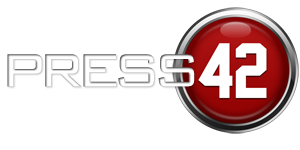Finding the Disruptive Element in Higher Education Part I

It’s time for a major shake up in the education sector. Technology has so far been complementing higher education (Facebook, anyone?) but hasn’t really altered it fundamentally. You still stay up all night writing essays, pay huge amounts for fees and course materials and drink more in three years then you will in the rest of your life. This is changing: universities and private businesses are embracing free online courses and access to education is growing across the world. It’s a great idea, sure. But is that really all that disruptive?
The biggest phenomenon in higher education at the moment is a thing called a MOOC, or a Massive Open Online Course. Students across the world can take classes at leading universities like MIT, Stanford and Princeton completely free online. There are catches and disadvantages of course – you won’t get a qualification or accreditation this way, and drop out rates are ridiculously high – but this is what the education sector has dreamed of for a long time: free, universal education.
But when you really peel back the layers of a MOOC, all you will find is a university course moved online. There are lectures in the form of videos, discussion groups in the form of online threads and forums, and assessments in the form of online quizzes. A MOOC is just content that’s been adapted rather than created specifically for the web: there’s no real disruption because it’s modeled after a centuries old institution.
But don’t panic! Change is happening, and it is coming from unexpected places: startups, business incubators and community groups. Duolingo, a magnificent language learning tool that is currently helping me improve my crappy German, is pitting users against their friends and the Internet in a Foursquare-esque version of gamified learning. Duolingo is free for users because as you learn, you translate the web: after each bite sized learning module, you are given the opportunity to translate real life sentences off the Internet to earn more points and trophies. Duolingo’s software gathers these translations and gives the website a best version that is not too far off professional quality, according to its creators.
Another great example of a new way of learning is the Rails Girls community. It started out in Helsinki as a way for women to learn how to use Ruby on Rails in an informal setting, and has become a fairly large non-profit volunteer community with active groups all over the world. Spread through word of mouth and social media, local two-day workshops are free of charge and offer a collaborative, no-stupid-questions style learning experience. Best of all, they are run by volunteers – people who are genuinely passionate enough about the subject that they will give up their weekends to spread the love.
The Rails Girls workshops (open to all genders, despite the name) are the kind of thing that you probably wouldn’t mention on your CV, but are ten times more applicable to real world work situations than your (my) BA in History. It doesn’t end at Rails Girls though – Meetup.com has a multitude of workshops in everything from javascript to luthiering.
General Assembly, a worldwide network of campuses offering courses in business, design and technology subjects, is closer to the traditional university experience than the other examples I’ve mentioned. It focuses on real world practitioners sharing real world experience, meaning that the courses are much more applicable to real life than university courses.
General Assembly speaks to me because it’s like going to university, but choosing your lectures on a one by one basis, and choosing only the ones that are relevant to you. It is incredibly powerful to be able to sign up for an hour long introduction to html, realise you enjoy it and sign up to do a ten week course. The mainstream acceptance of formats like GA could mean that students can tailor their learning to very specific objectives without wasting time on subjects that they aren’t interested in, essentially streamlining the university experience. I also think General Assembly is pretty cool because my esteemed colleague Alex has been known to share his startup expertise there on several occasions.
I don’t think that any of these learning experiences will replace university just yet. Despite the fact that I don’t work in either history or advertising, I wouldn’t give up either of my qualifications or the four years I spent at university simultaneously learning how to be a responsible adult and how to catch the bus home while extremely intoxicated. But I think that there is huge potential for online learning experiences to truly disrupt the education sector across the board, and I am super excited to see what is coming in this space.mooc
Part II: http://blog.press42.com/index.php/2013/01/15/online-higher-education-part-2/
Image: http://500px.com/photo/1100845

















Pingback: Finding the Disruptive Element in Higher Education Part I - Press42 | Marketing and communication in higher education | Scoop.it()
Pingback: Finding the Disruptive Element in Higher Education - Part 2 - Press42()
Pingback: Finding the Disruptive Element in Higher Education Part 1 « The Work: Claire Adamson()